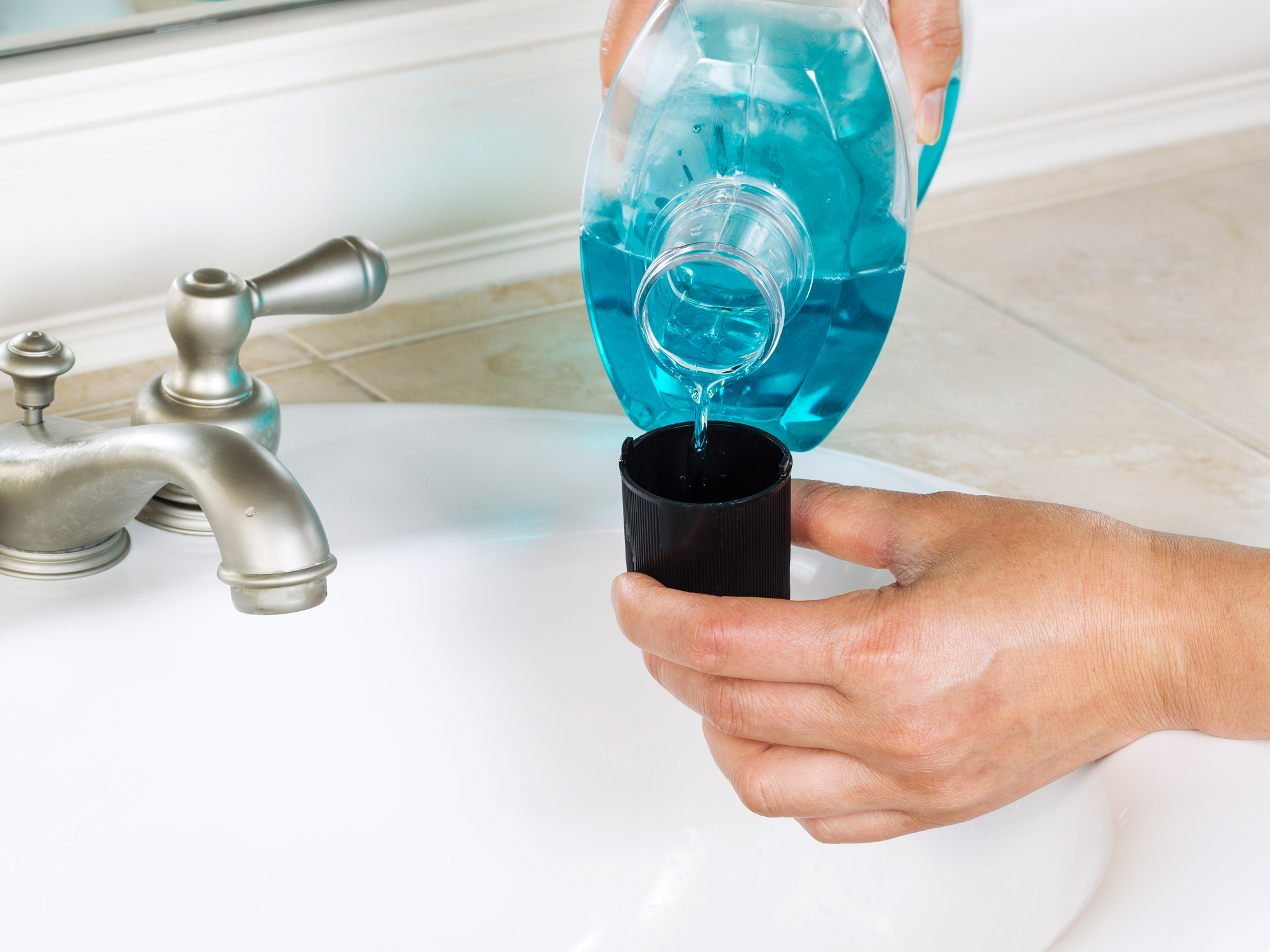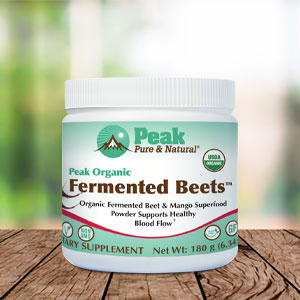Get Easy Health Digest™ in your inbox and don’t miss a thing when you subscribe today. Plus, get the free bonus report, Mother Nature’s Tips, Tricks and Remedies for Cholesterol, Blood Pressure & Blood Sugar as my way of saying welcome to the community!
How mouthwash makes you 50 percent more likely to get diabetes

Bad breath is big business. In 1970, there were 15 brands of mouthwash…
Today, there are more than 112!
Nobody wants to be the one who disgusts people with their foul-smelling breath, and companies like Johnson & Johnson, makers of Listerine, have been cashing in on this fear for decades.
But recent research is warning us that killing all those mouth bacteria that cause gum disease and bad breath may not be such a great idea after all. In fact, we’re learning that doing so could make us more susceptible to diabetes, cancer, and other health problems…
Increased diabetes risk with mouthwash use
Last year, researchers at the University of Alabama in Birmingham analyzed data from 1,206 overweight or obese adults who were part of the San Juan Overweight Adults Longitudinal Study.
The findings were startling. Those who reported using mouthwash at least twice daily were 55 percent more likely to develop prediabetes or diabetes over a three-year period.
Researchers suspect that the chemical compounds in mouthwash that kill odor-causing bacteria also destroy “good” mouth bacteria that are needed to form nitric oxide, a chemical compound that helps regulate insulin, dilate blood vessels and support your cardiovascular system.
Related: 4 supplements that fight aging and gum disease
Two other studies, in 2013 and 2017, support this suspicion. The 2013 study found that using mouthwash for seven days could decrease oral nitrite production by 90 percent.
Gargling with harmful chemicals
Mouthwashes are full of chemicals whose risks far outweigh the benefit of having sweet breath or whiter teeth. Depending on the type you choose, you’re gargling and swishing with one or more of the following compounds:
- Cetylphyridinium chloride – A 1988 study showed that this compound actually increases plaque buildup. And, because it tastes bad, it is often mixed with artificial sweeteners.
- Methaparaben – a preservative that has been linked to breast cancer
- Potassium sorbate – causes frequent allergic reactions, and thought to be toxic to the immune system
- Chlorhexidine – increases blood pressure as it kills good bacteria in the mouth and digestive tract that relax blood vessels
- Fluoride – now known to be a serious neurotoxin
- Methyl Salicylate – Just one teaspoon of this compound equals about 23,300 mg. of aspirin. It’s very easy to get a dose of this that could be harmful or even fatal by over-using mouthwash.
Natural alternatives for fresh breath
It’s easy to avoid the harmful compounds found in mouthwash. Here are a few steps you can take…
Germ expert Dr. Phillip Tierno of New York University tells us that the most frequent cause for bad breath is poor dental care. When food stays stuck between teeth, and bacteria accumulate on the tongue and in the throat, the result is a foul odor.
Dr. Tierno also warns that mouthwashes containing alcohol actually make the problem worse. They dry your mouth out, making saliva glands unable to wash away bacteria. Babies, he points out, have sweet breath because they make a lot of saliva… they’re always drooling!
So, here are some things you can do to avoid the problematic effects of mouthwash.
- Brush and floss after each meal. Remove food lodged between teeth, and clean your tongue of bacterial residue from your meal.
- Look for a natural, alcohol-free mouthwash. Read the label, though. Even ‘natural’ mouthwashes can have some of the chemicals we’ve discussed here.
- Make your own mouth rinse. Here are a few simple ‘recipes’ for home-made mouthwash…
Super-simple mouthwash: Combine a cup of filtered water with 4 teaspoons baking soda and 4 drops each of tea tree and peppermint essential oils. Shake well in a Mason jar, and use 2 Tbsps. after each meal.
Cinnamon and honey mouthwash: You might be surprised to learn that honey has dental health-promoting properties. In fact, a study published in Perspectives in Clinical Research found it to be as effective as chlorhexidine (listed above) at reducing dental plaque.
To make this sweet mouthwash, combine a cup of warm water (warm enough to melt the honey) with the juice of 2 lemons, ½ Tbsp. cinnamon powder, 1 tsp. baking soda, and 1 ½ tsp. raw honey. Shake in a Mason jar for one minute. Refrigerate, and use 2 Tbsps. after each meal.
Editor’s note: Did you know that when you take your body from acid to alkaline you can boost your energy, lose weight, soothe digestion, avoid illness and achieve wellness? Click here to discover The Alkaline Secret to Ultimate Vitality and revive your life today!
Sources:
- Could mouthwash be putting you at risk of diabetes? — Medical News Today
- 8 Natural Alternatives To Toxic Mouthwashes (We Give You The Recipes Right Here!) — NaturalON
- Over-the-counter mouthwash use and risk of pre-diabetes/diabetes — Nitric Oxide
- The use of mouthwash linked to increased risk of type 2 diabetes — NaturalHealth365.com
- Myth: Mouthwashes Eliminate Bad Breath — ABC NEWS
- Comparative evaluation of honey, chlorhexidine gluconate (0.2%) and combination of xylitol and chlorhexidine mouthwash (0.2%) on the clinical level of dental plaque: A 30 days randomized control trial — Perspectives in Clinical Research














